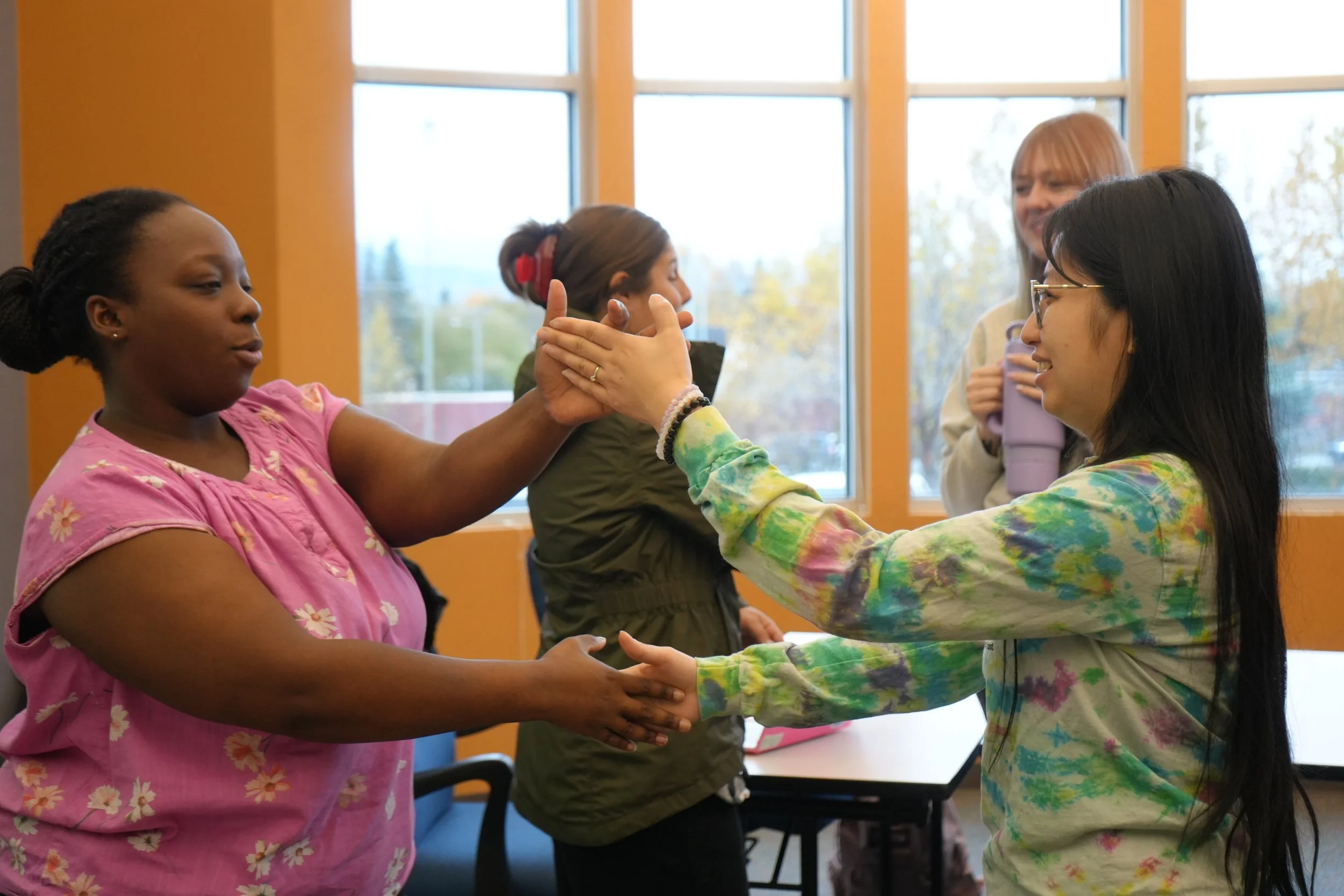CYC Course: Capturing Care: A Photojournalist’s Perspective on the CYC Foundations Course
I attended the CYC (Child and Youth Care) Foundations Course, which lasted three weeks (September 23rd through October 10th). The training took place in the Camp Fire Alaska building, located in Anchorage. This course is presented by the Alaska Afterschool Network, in collaboration with the Academy for Competent Youth Work. It offers free Child and Youth Care (CYC) credential training to school-age childcare providers. The course, which covers fundamental concepts and skills in youth work, is applicable to various youth-related professions, including after-school programs, early childhood education, and mental health services. At the training, we had youth care professionals from the Anchorage Bowl representing seven different programs.
The goal of the CYC training course is to provide a pathway to certification for child and youth care practitioners, which will enhance their abilities to apply for administrative roles at licensed childcare facilities. This will also help child and youth care workers succeed as an out-of-school-time professionals. As a part of my service as an AmeriCorps Communications VISTA, my supervisor recommended that I take the CYC Course. Through my training, I have been developing a better understanding of the professional child and youth care services, plus the ethical standards and practices of working with this demographic. In addition, I now know the requirements needed to fulfill administrative roles at licensed childcare facilities within the state of Alaska!
For me, this is a completely different career field from my area of study, Digital Media and Photojournalism. Even though my professional background differs, I found that this training will help propel me in my career path. The CYC training course was very informative and eventful. I especially found the ACEs (Adverse Childhood Experiences) video and discussion session impactful and enlightening. For example, I learned about the hidden consequences of ACEs, like the fact that the presence of ACEs can lead to a child feeling scared every day, and the brain isn’t learning how to control feelings properly. ACEs can even shorten life if not mitigated by Positive Childhood Experiences or buffered by positive role models and the presence of caring adults in a child’s life. Seeing this video and learning about the effects of ACEs saddens me, but looking around at others in the child and youth field gave me hope. Now that I have learned that the impact of ACEs over the course of a lifetime can be disastrous, I feel compelled to effectively advocate for children and youth dealing with this issue. This is just one reason why it is so important to have qualified CYC Practitioners, and organizations such as the Alaska Children’s Trust/Alaska Afterschool Network, who will advocate and implement the changes that will improve lives in our community.
Taking this CYC (Child and Youth Care) Foundations Course was educational. I am hoping this will help me while pursuing a career in digital media and journalism. I learned how to effectively communicate with children, use the code of ethics, and about ACEs. I am hoping to use the information I learned in the CYC training course, along with my storytelling & digital media background, to understand and advocate for children and youth in my community. Overall, I found the CYC training course informative and beneficial. I would definitely recommend future professionals to take this training course.


